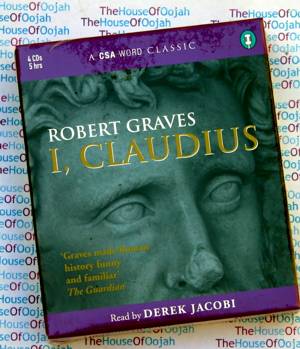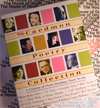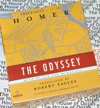I Claudius -Robert Graves - AudioBook CD

I, Claudiusby Robert GravesRead by Derek JacobiOther Classic Audio Book CDs Click hereGet the Odyessy by Homer on AudioBook click here |
 |
I, Claudius by Robert Graves - Read by Derek Jacobi AudioBook CDBrand New : 4 Audio CDs - 5 Hours Abridged I, Claudius and Claudius the God were written as if they were the secret autobiography of Claudius, the fourth emperor of Rome (r. 41-54 A.D.). The historical Claudius was kept out of public life by his family, the Julio-Claudians, until his sudden elevation at the age of 49. This was due to several disabilities—including a stammer, a limp, and various nervous tics—which made him appear mentally deficient to his relatives. This is how he was defined by scholars for most of history, and Graves uses these peculiarities to develop a sympathetic character whose survival in a murderous dynasty depends upon the incorrect assumption that he is a harmless idiot. Robert Graves claimed that after he read Suetonius, Claudius came to him in a dream one night and demanded that his real story be told. The life of Claudius provided Graves with a way to write about the first four emperors from an intimate point of view. In addition, the real Claudius was a trained historian and is known to have written an autobiography (now lost) in eight books that covered the same time period. I, Claudius is a first-person narrative of Roman history from the reigns of Augustus to Caligula; Claudius the God is written as a later addition documenting Claudius's own reign. Graves provides a framework for the story by having Claudius describe his visit to Cumae, where he receives a prophecy in verse from the Sybil, and an additional prophecy contained in a book of "Sybilline Curiosities". The latter concerns the fates of the "hairy ones" (i.e. The Caesars - from the Latin word "caesar", meaning "a fine head of hair") who are to rule Rome. The penultimate verse concerns his own reign, and Claudius assumes that he can tell the identity of the last emperor described. From the outset, then, Graves establishes a fatalistic tone that plays out at the end of Claudius the God, as Nero prepares to succeed Claudius.At Cumae, the Sibyl tells Claudius that he will "speak clear" nineteen hundred years hence, which he takes to mean that he should write his secret memoirs and leave them to be found by posterity. He therefore chooses to write in Greek, since he believes that it will remain "the chief literary language of the world." This allows Graves to explore the etymology of Latin words (like the origins of the names "Livia" and "Caesar") that would otherwise be obvious to native Latin speakers, who Claudius believes will not exist in the future. About the Author Robert Graves:Robert Ranke Graves (24 July 1895 – 7 December 1985) was an English poet, translator and novelist. During his long life, he produced more than 140 works. He was the son of the Anglo-Irish writer Alfred Perceval Graves and Amalie von Ranke, a niece of the famous German historian Leopold von Ranke. He was the brother of the author Charles Patrick Graves and half-brother of Philip Graves. Graves considered himself a poet first and foremost. His poems, together with his translations and innovative interpretations of the Greek Myths, his memoir of the First World war, Good-bye to All That, and his historical study of poetic inspiration, The White Goddess, have never been out of print. He earned his living from writing, particularly popular historical novels such as I, Claudius, King Jesus, The Golden Fleece, and Count Belisarius. He also was a prominent translator of Classical Latin and Ancient Greek texts; his versions of The Twelve Caesars and The Golden Ass remain popular today for their clarity and entertaining style. Graves was awarded the 1934 James Tait Black Memorial Prize for both I, Claudius and Claudius the God. In 1927, he also published Lawrence and the Arabs, a commercially successful biography of T. E. Lawrence. Good-bye to All That (1929, revised by him and republished in 1957) proved a success but cost him many of his friends, notably Siegfried Sassoon. In 1934 he published his most commercially successful work, I, Claudius. Using classical sources he constructed a complex and compelling tale of the life of the Roman emperor Claudius, a tale extended in the sequel Claudius the God (1935). Another historical novel by Graves, Count Belisarius (1938), recounts the career of the Byzantine general Belisarius.Graves and Riding left Majorca in 1936 at the outbreak of the Spanish Civil War. In 1939, they moved to the United States and took lodging in New Hope, Pennsylvania. Their volatile relationship was described in non-fiction by Richard Perceval Graves in Robert Graves: 1927-1940, The Years with Laura and T.S. Matthews' book Jacks or Better (1977), and also was the basis for Miranda Seymour's novel The Summer of '39 (1998). After returning to England, Graves began a relationship with Beryl Hodge, then the wife of Alan Hodge, his collaborator on The Long Week-End (1941) and The Reader Over Your Shoulder (1943; republished in 1947 as The Use and Abuse of the English Language). In 1946 he and his new wife Beryl re-established a home in Deià, Majorca. The house is now a museum (http://www.lacasaderobertgraves.com/). 1946 also saw the publication of the historical novel King Jesus. He published a difficult book, The White Goddess in 1948. He turned to science fiction with Seven Days in New Crete (1949), and in 1953 he published The Nazarene Gospel Restored with Joshua Podro. In 1955, he published The Greek Myths, containing translations and interpretations. His translations are well respected and continue to dominate the English-language market for mythography, whereas some of his unconventional interpretations and etymologies are dismissed by classicists but have provoked more research into the topics he raised. Graves dismissed the reactions of classical scholars, arguing that by definition they lacked the poetic capacity to forensically examine mythology. In 1956, he published a volume of short stories Catacrok! Mostly Stories, Mostly Funny. In 1961 he became professor of poetry at Oxford, a post he held until 1966. In 1967, Robert Graves published, together with Omar Ali-Shah, a new translation of the Rubaiyat of Omar Khayyam.The translation quickly became controversial; Graves was attacked for trying to break the spell of famed passages in Edward FitzGerald's Victorian translation, and L. P. Elwell-Sutton, an Orientalist at Edinburgh University, maintained that the manuscript used by Ali-Shah and Graves – which Ali-Shah and his brother Idries Shah claimed had been in their family for 800 years – was a forgery. The translation was a critical disaster, and Graves' reputation suffered severely due to what the public perceived as his gullibility in falling for the Shah brothers' deception. From the 1960s until his death, Robert Graves frequently exchanged letters with Spike Milligan. Many of their letters to each other are collected in the book, "Dear Robert, Dear Spike." On 11 November 1985, Graves was among 16 Great War poets commemorated on a slate stone unveiled in Westminster Abbey's Poet's Corner. The inscription on the stone was written by friend and fellow Great War poet Wilfred Owen. It reads: "My subject is War, and the pity of War. The Poetry is in the pity." Graves was the only poet of the sixteen still living at the time of the commemoration ceremony. Graves died in December 1985 at the age of 90, following a long illness and gradual mental degeneration. He and Beryl are buried in the small churchyard on the hill in Deia, overlooking the sea on the northwest coast of Majorca. |
I, Claudius by Robert Graves - Read by Derek Jacobi AudioBook CD |

 0 Items (Empty)
0 Items (Empty)




